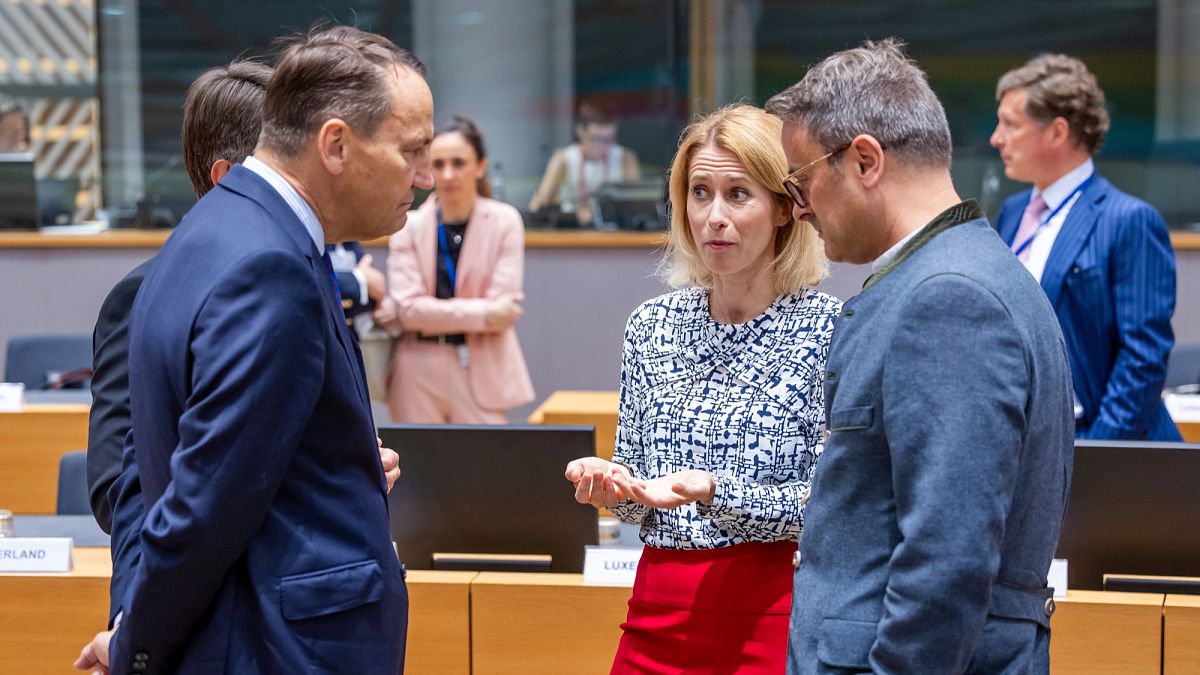

Amidst a backdrop of dynamic international relations, recent events have unfolded across various regions, underscoring the importance of diplomacy, regional cooperation, and governance reforms on the global stage. From European Union deliberations to reshuffles in Ukrainian governance and international summits, these developments reflect a world in transition, seeking harmony, stability, and progress.
In the European Union, the 27 foreign ministers convened to discuss measures regarding Israel’s actions in Gaza. This gathering marked a commitment to meticulously observe Israel’s adherence to a recent agreement aimed at enhancing humanitarian aid access into Gaza. Although a consensus on potential responses was not reached, the ministers emphasized their collective resolve to maintain oversight and engage diplomatically. This delay in deciding on specific measures signifies the EU’s cautious approach, focusing on sustained observation and dialogue.
Meanwhile, in Ukraine, political shifts are taking shape as Prime Minister Denys Shmyhal announced his resignation, paving the way for a significant government reshuffle. The upcoming parliamentary vote will decide on the dismissal of Shmyhal’s government, following initiatives led by President Volodymyr Zelenskyy. These changes reflect a strategic evolution in Ukrainian politics, aiming to strengthen governance structures and align with the country’s broader aspirations.
In a demonstration of regional cooperation, the 17th Economic Cooperation Organization summit convened in Khankendi, Azerbaijan, showcasing the commitment of member states to pursue deeper integration. Prioritizing trade, enhanced transport corridors, and stronger regional collaborations, leaders underscored the significance of collective efforts in fostering stability and economic growth. This summit highlighted the enduring importance of partnerships and interconnectedness in addressing regional challenges and unlocking potential opportunities.
Turning to Balkan relations, the European Commission opted not to take a definitive stance on the ongoing dispute between Kosovo and Telekom Serbia. This decision underscores the Commission’s careful approach in navigating complex regional disputes, reflecting a broader strategy of careful diplomacy and cautious engagement in addressing sensitive issues.
On a broader international scale, a 30-nation meeting, hailed by Francesca Albanese, the UN rapporteur, aimed at ending the Israeli occupation of Palestine, was held in Bogotá, Colombia. This gathering is applauded as a significant political milestone, bringing together diverse nations, including China, Spain, and Qatar. The conference represents a collective endeavor to explore political, economic, and legal avenues to address longstanding regional conflicts, marking a concerted effort towards peace and resolution at what is described as an “existential hour” for the region.
Collectively, these developments highlight the ever-evolving landscape of international relations, characterized by strategic shifts, regional collaborations, and diplomatic engagements. As the global community continues to navigate complexities, the emphasis on dialogue, cooperation, and strategic governance remains paramount in fostering a more peaceful and integrated world.
Source: {link}
